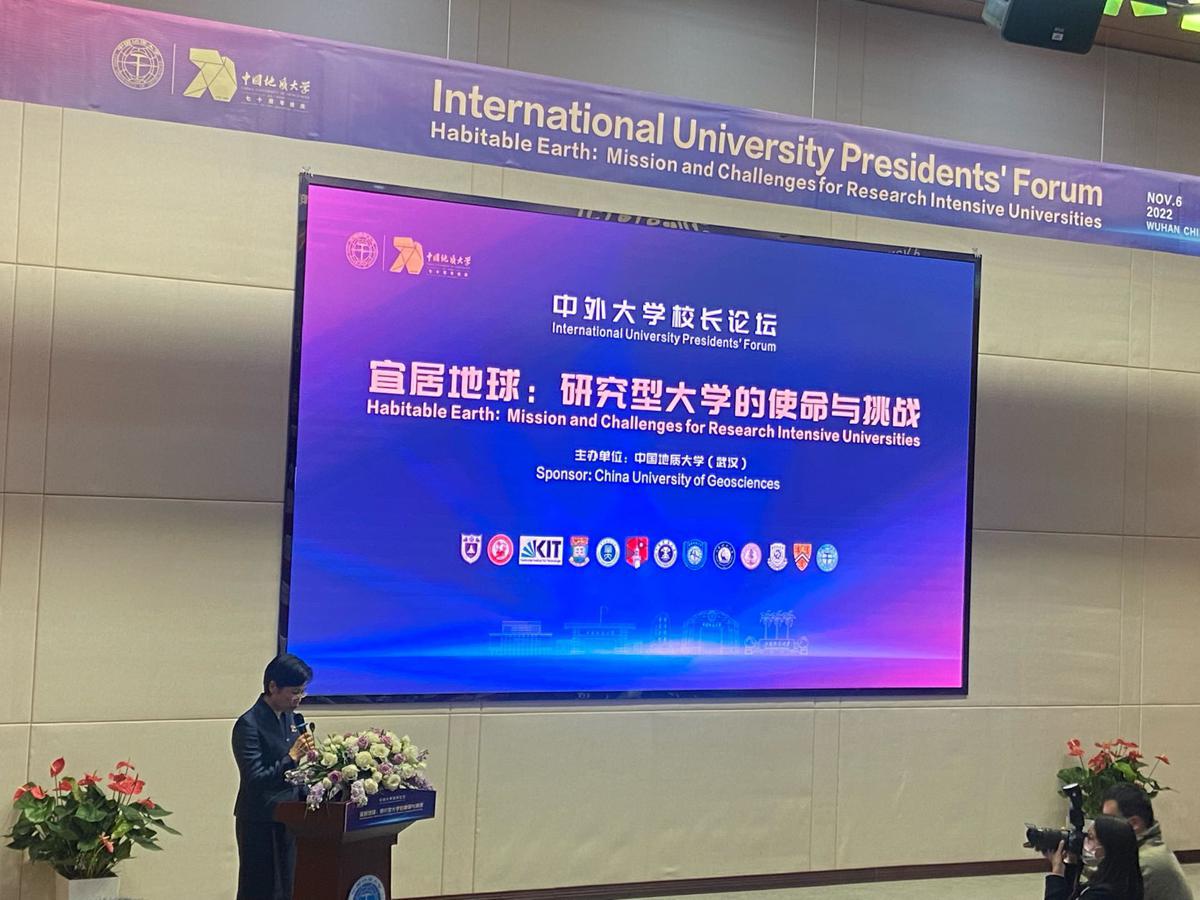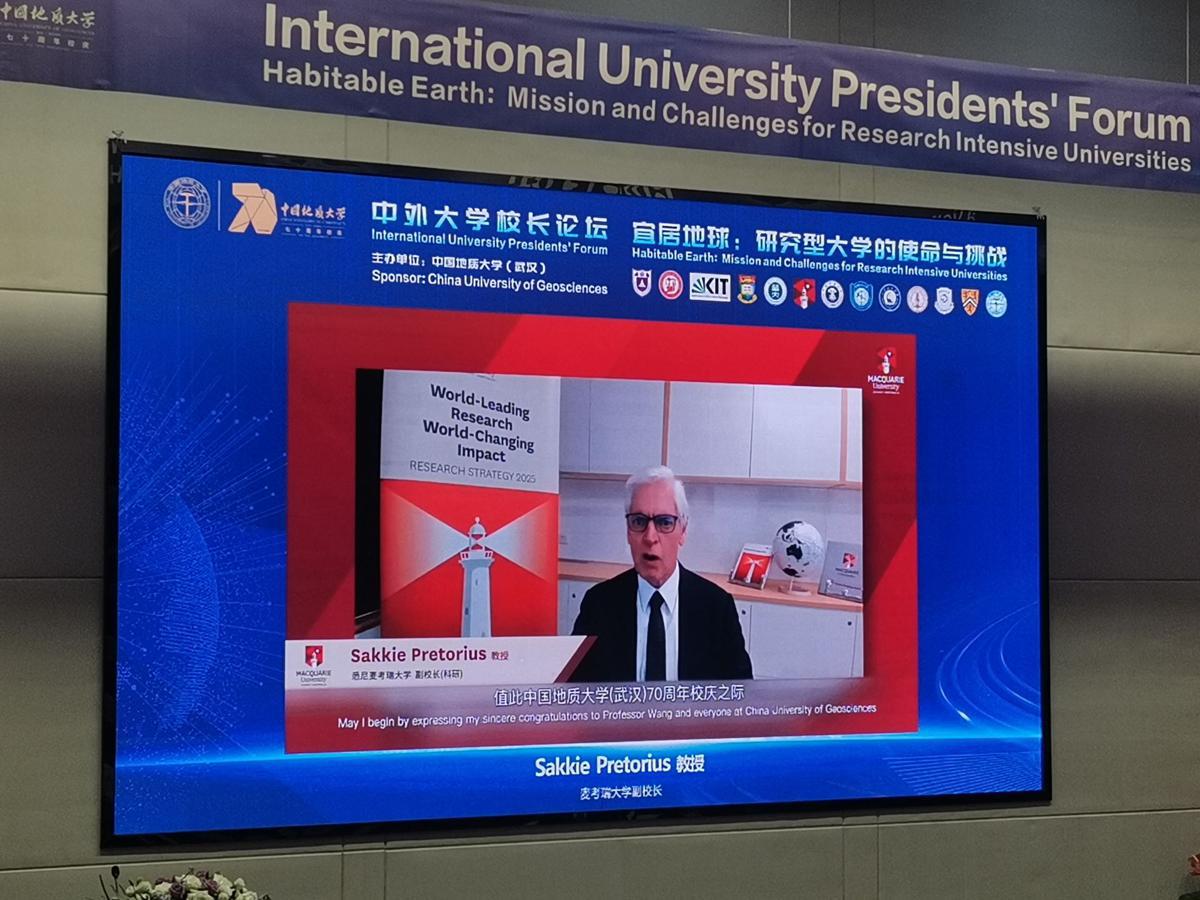Wuhan forum discusses geosciences changes in education

Representatives from world-renowned research universities in Earth science, principals of primary and secondary schools, and scholars from all over the world engage in discussions on major challenges to the habitability of the Earth, and exchange ideas on the mission, responsibilities and pathways to promoting the habitability of the Earth through education, at a forum held by the China University of Geosciences in Wuhan, Hubei province, on Sunday, as part of activities to celebrate its 70th anniversary. [Photo by Liu Rongrong/for chinadaily.com.cn]
Global universities, research institutions, primary and secondary schools, as well as all sectors of society are called on to implement the new geosciences education and promote a harmonious co-existence between man and nature in a timely manner, according to consensus released at a forum in Wuhan, Hubei province on Sunday.
The consensus said that the value system, knowledge system and dissemination system of geosciences education should be adjusted and optimized to form a more diversified, comprehensive and inclusive paradigm, under which theories, technologies and methods could be generated, contributing to green and low-carbon production and life styles.
The China University of Geosciences (CUG) released the consensus co-developed by multiple educational institutions worldwide at a forum focusing on promoting the habitability of the Earth through education, as part of the activities celebrating the university's 70th anniversary.
"The Earth is the only known habitable planet for various species to live and propagate in the vast universe. As an intelligent species, human beings inhabit the Earth and extract energy resources from it for survival and development. A shared future for mankind is determined by the habitability of the Earth".

Representatives from world-renowned research universities in Earth science, principals of primary and secondary schools, and scholars from all over the world engage in discussions on major challenges to the habitability of the Earth, and exchange ideas on the mission, responsibilities and pathways to promoting the habitability of the Earth through education, at a forum held by the China University of Geosciences in Wuhan, Hubei province, on Sunday, as part of activities to celebrate its 70th anniversary. [Photo by Liu Rongrong/for chinadaily.com.cn]
"Due to the combined effects of the Earth's own evolution and anthropogenic changes, a global shortage of energy resources, environmental pollution, climate change, frequent disasters and ecological damage have become increasingly serious, threatening the livability of the Earth at unprecedented rates," said the Wuhan Consensus: New Geoscience Education Initiative.
It proposed a new paradigm of geosciences education that transcends anthropocentrism, dismissing the utilitarian idea of acquiring the knowledge of geosciences solely as a means to guarantee human survival and development. Instead, it should teach and explore the ways of how human beings could better get along with the Earth.
"The new geosciences education has to transcend the paradigm of human exceptionalism by rejecting the ideology that human ingenuity and technology alone can protect and even save the planet. It should promote teaching and exploring means of better cooperation and mutual restoration with the non-human world," it said.
The consensus also said new geosciences education has to conduct a systematic reconstruction of the knowledge system of current disciplines such as geology, geophysics, geography, atmospheric science and marine science, and integrate the latest advances in science and technology to continuously develop new curricula and knowledge modules.
It also said a pluralistic educational paradigm should be established to precisely fit different audiences. Collaborations among different tiers of geosciences education are marked with a due division of labor and effective interconnectedness through elementary education, secondary vocational education, higher education and public education, according to the consensus.
"Geosciences education will no longer take the non-human world solely as the object of study, but rather as a scenario of experience for co-existence and integration, developing a pedagogical collaboration that transcends human beings," it said.






